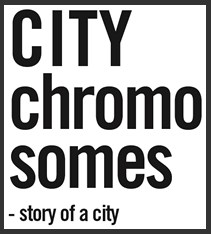A few weeks ago, Ben posted about The Bible Society of Australia‘s new “transl8tion” of the Bible into SMS–a shorthand system used primarily for sending text messages through mobile phones. Interesting to note that an organization like the Australian Bible Society, which believes the text of the Bible to be the very word of God, does not seem have a problem with the fact that the SMS version changes the voice of god from that of a wizened poet to that of a text-messaging teenager. Here’s an example:
4 god so luvd da world
I’m all for reading on cellphones and other portable devices, and I understand using a shorthand language for keying in messages, but why does the published book need to look like an electronic stenographer’s notepad? I realize that the form of the electronic “page” is changing the way we write, but I’ll be more than a little disappointed if this is the direction we are going–toward a cutesy-looking shorthand that compromises the integrity of the text for the sake of expediency. The aesthetic beauty of words is no small thing. Great writers understand this. They know how to choose words that weave visual and aural subtext into their work. Consider, for a moment, whether those subtleties translate into SMS. Imagine a text messagable Gettysburg address: 4 scor & 7 yr.z ago… Or a shrunk-to-fit Dickens: it wz d best of tImz, it wz d worst of tImz.
Are you with me when I say that they jst dun hav d powR of d orignL txt.
Category Archives: txt
thoughtful intertextuality
New Orleans DoubleQuotes by Charles Cameron plays with juxtaposition, cleverly pairing bits of text in ways that illuminate Katrina and all that flows from it:
Think of these paired quotes as twin thoughts dropped into the mind-pond — not so much for their own sakes as for the sake of the ripples and resonances between them. I invite you to read these DoubleQuotes one pair at a time, slowly, slowly, so that the multiples ironies and quiet nuances that have come together in the weaving of this tragedy have room to breathe.
(thanks, Bryan Alexander of Infocult)
treasuremytext: a networked SMS book
treasuremytext is a free British service that allows you to save text messages from your phone to the web on an anonymous, communal log, or “slog.” Recent messages appear in a column on the main site where they can be read by all and sundry, subscribed to by feed, and even loaded onto an iPod as plain text files. jill/txt has a transcript from about two weeks back:
trying to convince myself that there was nothing there but i still find myself thinking about you
night nimet . . . . i miss you
How about sorting that taxi out for next week? For real?
Ok smart arse when you are there then! And then i will fix your issues for you, all of them!
U have beautifull eyes
Dont ring ill b down bout halfpast babes
Me to hes just arrived txt u l8r baby
Nite nite xxx
Nite nite fat sexy bum.Txt u tomoz nite nite xxxx
Not exactly prize-winning stuff, but has a nice dreamy flow of chatter plucked out of the air. Reminds me a bit of a game I played in elementary school where you go around a circle and improvise a story in broken-off pieces. Reading the site today, the entries seem to have taken on a smuttier tone. And a good number aren’t in English. But an intriguing experiment nonetheless.
But it would be more interesting if the logs had some focus. Something like the City Chromosomes project, which is building a networked chronicle of the city of Antwerp, all by SMS.
city chromosomes – an sms chronicle
 Found this on textually.org. The City Chromosomes project is a sort of scrapbook of the city of Antwerp made entirely from text messages beamed in from mobile phones. Further evidence of the new genres emerging from this technology. An english version has just been published under a Creative Commons license.
Found this on textually.org. The City Chromosomes project is a sort of scrapbook of the city of Antwerp made entirely from text messages beamed in from mobile phones. Further evidence of the new genres emerging from this technology. An english version has just been published under a Creative Commons license.
Also take a look at this sister project, CityPoems, from Leeds. Posts from the Leeds project are interspersed through the english version of “Chromosomes.”
From the introduction to “City Chromosomes”:
“The city of Antwerp is full of writers. And many of these writers describe their city, often in splendid stories, novels and poems that gain a wide readership. In this way, they determine a large part of our image of the city. But what about the people who only readers, or even those who do not care for reading, what do they think of the city? And would it not be possible to persuade them to write this down?
“This was the point of departure for the City Chromosomes project. We got the idea of gathering sms messages. Nearly everybody has a mobile phone. Everybody has a moment to spare to type in a message. This was the ideal way to make the project accessible to everybody. The people of Antwerp, and anyone else with something to say about city, could submit their impressions anonymously. We established 25 text sites across the city, and the contributors could indicate with a simple code to which part of the city their message applied. By means of posters, flyers and ads, we asked people for their impressions. The only restriction: the messages should not be longer than 160 characters.”
